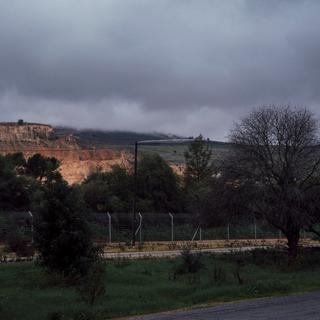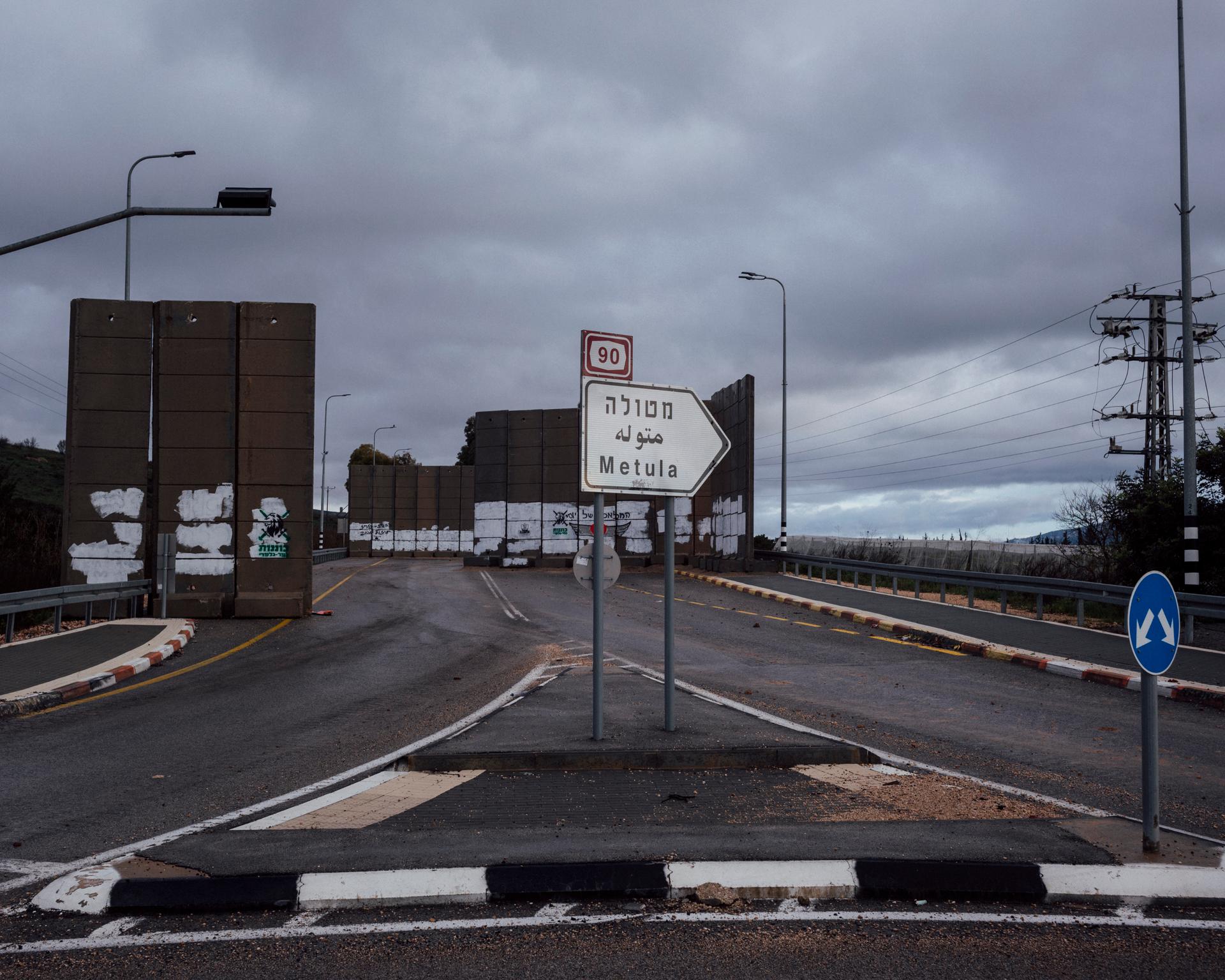


In deserted northern Israel, some kibbutz inhabitants push for war
FeatureIn the evacuated kibbutz of Kfar Giladi, on the border with Lebanon, a group of Israelis who stayed behind have taken on the role of lookouts to secure the strip of land targeted daily by Hezbollah fire.
Among the mass of toys abandoned in the empty Kfar Giladi kibbutz in northern Israel, the white telescope is the only one to have found a new use. Due to Hezbollah fire from Lebanon, the bulk of the 700 inhabitants were evacuated nearly four months ago from this locality, which sticks to the border and winds higher up into the steep hills. In a corner of the kibbutz with its closed shutters and overgrown gardens, where the branches of lemon and orange trees bend under fruit that no one harvests, Le Monde climbed the stairs of a house to enjoy what used to be an unobstructed view.
Installed on its tripod, on the vast panoramic terrace of this pretty villa, straight out of a decorating magazine, the telescope is no longer used to admire the stars on clear nights, but to track down the slightest movement in the Lebanese villages opposite, less than three kilometers away.
Nisan Zeevi has made it one of his observation posts. Since the outbreak of the conflict on October 7, Zeevi has given up his job as a start-up developer and, as a reservist, joined the handful of Kfar Giladi residents who remained at the time of the evacuation (which involved 80,000 people, since assisted by the state), to ensure the security of the area, alongside the army.
Ghost towns
Along the 120 kilometers stretching between the Golan Heights and the sea, the entire border strip on the Israeli side looks like this: a succession of ghost towns, where shadows pass by, soldiers, guards or elderly people, as geographically close as they are irremediably distant from their Lebanese neighbors and now enemies.

In the aftermath of the Hamas attack on Israeli territory on October 7, which left 1,200 people dead, residents of kibbutzim, moshavs (farming communities) and the large town in the northern Galilee region, Kiryat Shmona, feared a similar attack by Hezbollah. The group led by Hassan Nasrallah has long circulated videos discussing possible similar operations. The military incursion could have been carried out by the elite Radwan troops, several thousand of whom are located not far from the border. It didn't happen, but a system of continuous fire was set up.
Israel claims to be striking Hezbollah positions in Lebanon with artillery and missiles fired from aircraft. Hezbollah, for its part, targets buildings, inhabitants or soldiers when the opportunity arises. The vast majority of Hezbollah fire is confined to a 5-kilometer strip corresponding to the evacuated zone on the Israeli side. This is to avoid escalation, while maintaining constant pressure.
You have 75% of this article left to read. The rest is for subscribers only.
